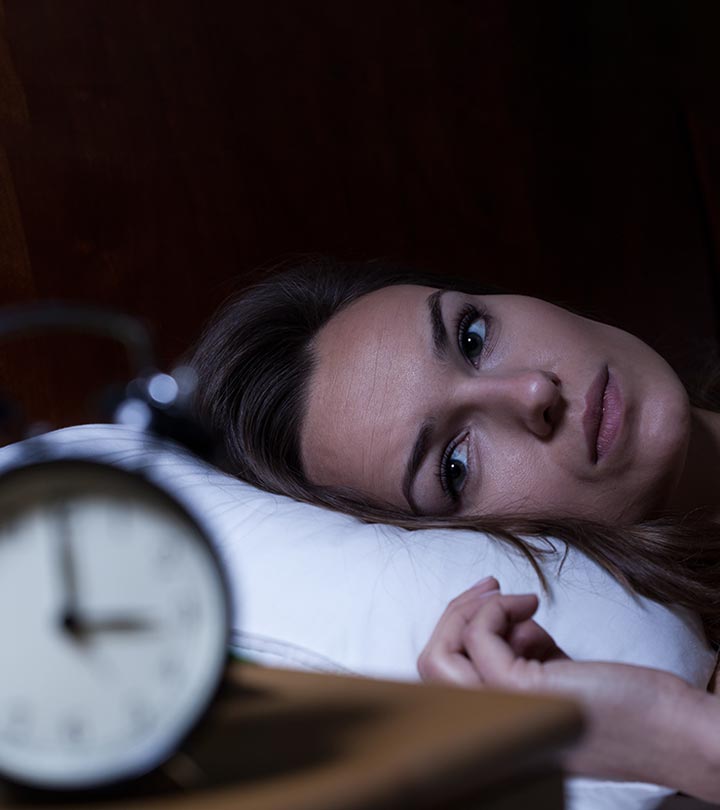If you’re looking to fall asleep quicker, stay asleep longer, and improve daytime performance then natural remedies for falling asleep are worth considering.
In certain cases, a doctor may prescribe a sleep aid but generally, these medications come with unpleasant side effects. Similarly, an over the counter sleep medicine, like NyQuil, often leads to drowsiness the next morning.
Fortunately, there are plenty of time tested natural remedies for falling asleep that are proven to induce sleepiness while promoting proper sleep hygiene.
Having an issue with sleep can be extremely frustrating. Continue reading to educate yourself on the top natural remedies for healthy sleep so you can wake up and hit the ground running.
Try These 8 Natural Remedies for Falling Asleep More Easily
Using natural sleep aids in the hours before bed has become ever more popular. The reason is simple, they work. If you’re having difficulty falling asleep, consider one of these natural sleep remedies.
#1 – How do melatonin supplements work?
Melatonin — a sleep hormone — is triggered by exposure to darkness and helps orient your body’s sleep wake cycle (circadian rhythm).
One study found that melatonin even improves sleep for those suffering from delayed sleep-wake phase disorder (DSWPD).
Think about how natural light glaring in through your bedroom window can wake you up in the morning. Conversely, when the sun goes down and you’re exposed to darkness, your body begins its natural sleep cycle by producing melatonin.
Unfortunately, blue light exposure from devices like cellular phones or television screens hinders your body’s natural melatonin production.
If you’re like so many Americans, you might find it difficult to limit your exposure to LED lighting (cell phones, computer screens, television) in the hours before bed.
Incorporating a melatonin supplement into your bedtime routine may be the solution to your sleep issues.
Melatonin is also a popular short term solution for those who are experiencing jet lag by helping to regulate their sleep wake cycle and thus reduce daytime sleepiness.
#2 – Is lavender oil an effective sleep remedy?

Lavender oil is derived from the flower spikes of certain species of the lavender plant (Lavendula).
Aside from its lovely fragrance, lavender is believed to promote sleepiness and have other sedative effects.
According to one sleep study, lavender oil, whether inhaled or ingested, statistically improved sleep quality in adults aged 18-65.
One of the greatest things about lavender therapy is that it comes in a variety of pleasant forms.
You can easily incorporate lavender into your normal bedtime routine with infused soaps, creams, or candles. Using essential oil diffusers for aromatherapy is another popular option.
If you have a knack for interior design, you could even accentuate your bedroom with the enchanting lavender flower and reap its sleep-inducing properties.
#3 – Is valerian root a good herbal remedy for sleep?
Native to Europe and Asia, valerian root is a commonly used herbal supplement for people suffering from problems sleeping.
According to a recent study, valerian root is not only safe for people of all ages, it also may improve sleep quality.
The study also found that valerian root has potential benefits for treating anxiety, a common symptom for people suffering from sleep disorders.
The study participants, who were given valerian in whole root form, achieved more consistent results than those given extracts.
More research is needed to determine the efficacy of valerian root in treating insomnia but you can be sure it’s safe to use (unless you’re pregnant).
If you struggle with anxiety and/or have trouble falling asleep, consider sipping a hot cup of valerian tea in the hours before you head to snoozerville.
#4 – How does chamomile tea help sleeplessness?

Chamomile is a medicinal herb that’s been used for centuries in the western world. It’s gained popularity of late, with over a million cups of tea consumed daily worldwide.
Chamomile is commercially available in two varieties, German Chamomile and Roman Chamomile.
German chamomile is often used for its sedative and muscle relaxing effects whereas roman chamomile is predominantly used for gastrointestinal issues.
According to a recent study, chamomile tea proved to be safe and effective for significantly improving sleep quality.
Chamomile isn’t just a sleep aid, it’s also been approved for use in treating many other ailments (fever, cold, inflammation, infection, wounds, burns), making chamomile an herbal powerhouse and top choice in The United States.
You can enjoy chamomile’s medicinal properties as a tea, essential oil, or dietary supplement.
Whatever your preference, chamomile is definitely worth trying if you’re struggling with poor sleep.
#5 – How does lemon balm ease sleep disorders?
Lemon balm is an herbaceous plant from the mint family with a delectable lemon-scent. It’s native to Southern Europe and Northern Africa but is now grown all over the world.
Lemon balm has been used for centuries to treat a variety of disorders. Today, it’s most commonly used as a sleep aid.
You can apply lemon balm infused lotion to the skin, consume it as a tea, or take it as a supplement. You can also use lemon balm essential oil in aromatherapy.
More research is needed to determine the efficacy of lemon balm, but one study found that combining lemon balm with valerian root proved to be effective in treating restlessness.
Researchers studied nearly 1,000 people and reported a 70% reduction in symptoms of restlessness among the participants.
#6 – Have you tried magnesium supplements to help sleep trouble?
Magnesium is a vital mineral necessary for overall health. In fact, every cell and organ in the body needs magnesium to function properly.
Studies indicate that insomnia is one of many conditions that may arise from inadequate levels of magnesium in the body.
If you have a magnesium deficiency, it could be the root of your sleeplessness, and you might want to consider magnesium supplementation.
Almonds, spinach, cashews, cheese, black beans, and dark chocolate are all great options for boosting your magnesium intake. In general, foods rich in magnesium are greens, nuts, seeds, and low-fat dairy products.
If you prefer, magnesium supplements are also available in pill form.
#7 – Will a passionflower tincture increase sleepiness?

Passionflower is a gorgeous fast-growing perennial vine. It’s gained popularity as a sleep aid due to its suggested medicinal effects.
Some studies indicate that passionflower may be a good natural remedy for treating anxiety and insomnia.
In a recent clinical trial, patients aged 18-35 ingested a cup of passionflower tea per day for a week. The results indicated that sleep quality was significantly improved for those who received the passionflower tea over the placebo group.
The findings suggest that passionflower yields effective short term results for adults who experience fluctuations in sleep quality.
Still, more research needs to be done to determine the long-term efficacy of passionflower as a natural sleep aid.
#8 – What are the effects of glycine?
Glycine is an amino acid that the body uses to create proteins.
Your body produces glycine on its own by synthesizing biochemicals in the body. It’s also consumed through high protein foods like fish, meat, dairy, and eggs.
Glycine is important for sleep because it’s responsible for helping the body produce serotonin — a hormone that significantly affects sleep and mood.
A recent study conducted by researchers found that oral administration of glycine lowered body temperature, increased REM sleep, and reduced sleep latency.
The bottom line is that glycine is an essential amino acid for healthy sleep cycles.
Chances are you’re probably already getting enough glycine from your regular diet. If you fear you may be deficient, you should consider a glycine supplement or simply eat more foods high in protein.
Final Thoughts
Making your way to dreamland so you can get that all elusive restful sleep sometimes feels like a burden. Even practicing good sleep habits and proper sleep hygiene doesn’t always guarantee sleep at night.
Before you purchase a sleep aid from the drugstore loaded with potentially unpleasant side effects, consider the healthier alternative medicine route.
You may find that a natural remedy is more effective than a chemical sleep aid.
What’s also so great about natural sleep remedies is, instead of unpleasant side effects, you’re likely to see benefits in your overall health.

Welcome to Snoozerville! I’m Dr. Alex Hartley, your guide to the world of restful sleep. With a Ph.D. in Sleep Science and years of experience as a sleep therapist, I’ve dedicated my life to understanding and improving sleep quality. My passion lies in uncovering the mysteries of sleep and sharing practical, science-backed advice to help you achieve the best rest possible. Beyond my academic pursuits, I’m an advocate for mindfulness and relaxation techniques, which I incorporate into my daily routine. At Snoozerville, I aim to transform your nights, combining the latest research with easy-to-implement tips. Whether you’re a chronic insomniac or just looking to improve your sleep hygiene, join me on this journey towards peaceful, rejuvenating sleep.



